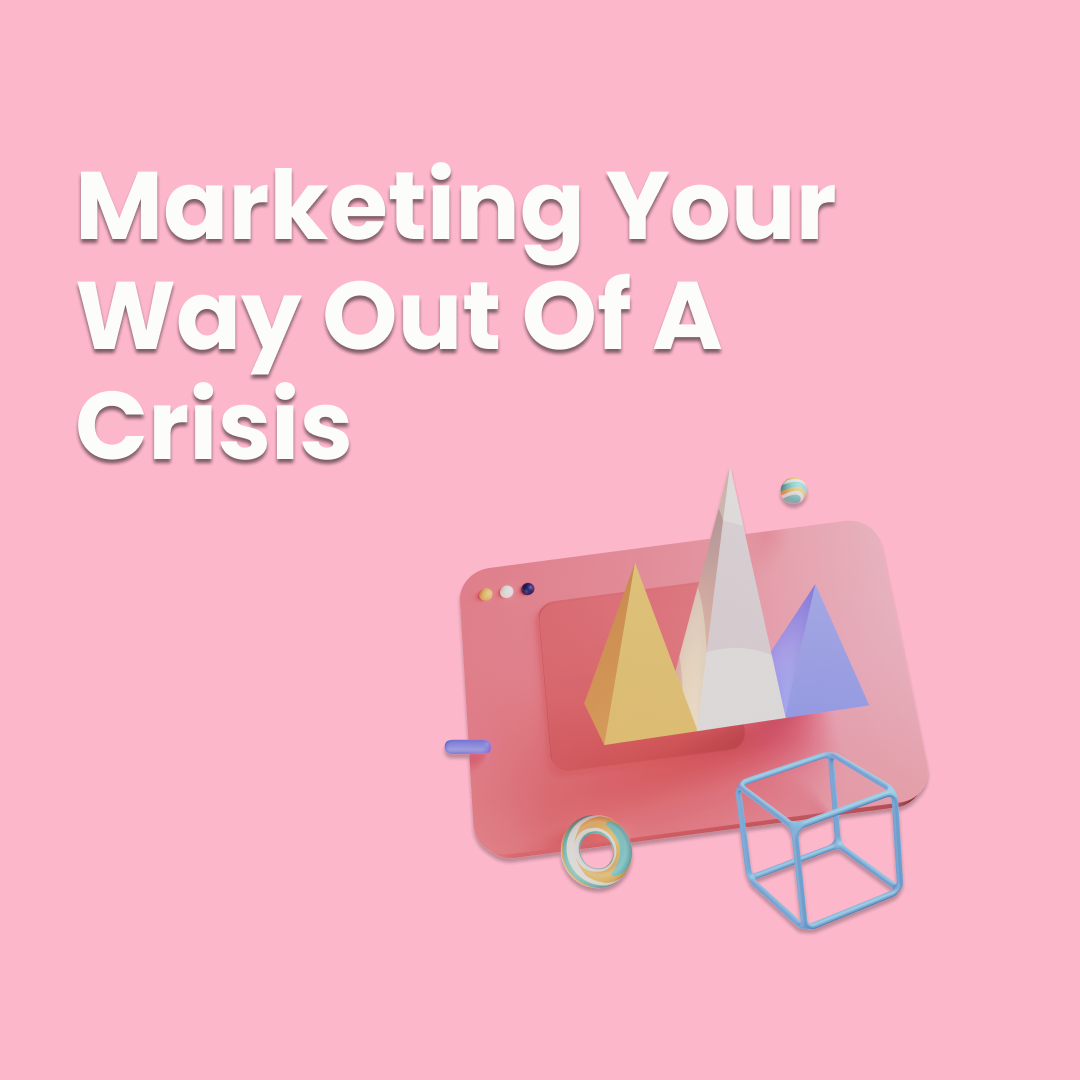On Wednesday 14th July, I was invited to speak at a panel discussion event by Connect Yorkshire, on the top of ‘Marketing your way out of a crisis’. As the world returns to normal after Covid, along with other political and economical factors at play, it was an opportunity to reflect on the role marketing can play in your business when there are external factors affecting consumer behaviour and buying habits.
The event was held at Workstation in Sheffield and I was joined on the panel by Chris Morris from SHOO Social and Mike Hall from ThinkSMART Marketing, with Phil Harris from Brown Shipley chairing the session.
One of my key takeaways from the event was how little we actually spoke about crisis marketing; it seems that people’s minds have moved on and when speaking about the challenges faced by marketers, ongoing external factors didn’t seem to be playing too much of a role just yet. We spoke about the broader importance of knowing your target audience, choosing the right channels to market to them and always ensuring you’re measuring ROI to invest in the highest performing campaigns. With any marketing, there is never a one size fits all approach and doing your own research into what works best for you and your customers will be the driver to ensure your business grows.
That being said, I wanted to dive into some of my key thoughts around the original topic of Marketing your way out of a crisis.
What would be considered a crisis?
In marketing, there are a number of macro-environmental factors that can affect your business, often summarised with the acronym PESTLE, which stands for Political, Economic, Sociological, Technological, Legal and Environmental. This looks at the broader external landscape that could affect your business. In most recent times, this would be things such as Covid, the war on Ukraine, fuel and energy prices, the cost of living crisis, climate change and so on.
There are also internal crises to consider. Your business may hit the headlines due to some controversy either in your industry or within your business or leadership team, you could have a whistleblowing scandal, received bad PR or a bad review – the list goes on.
Businesses will no doubt suffer many crises in their lifetime, some bigger than others, and we’re going to look at how you can react with marketing to weather the storm effectively.
Using marketing in times of crisis
Obviously Covid has been one of the most disruptive crises of recent times, and has affected the way everyone lived and worked for over 2 years. On 25th March 2020, around a quarter of our customers phoned us to cancel their marketing immediately, as they were uncertain about what the future held and wanted to cut back on spending. I totally understand the knee-jerk reaction, however we found very quickly that all of those customers came back and are now spending more on marketing now than ever. The problem with cutting back on your marketing spend during a crisis is that you’re avoiding the problem. Stopping marketing is making a decision to stop being creative, to stop innovating and moving forward, and more importantly it’s a decision to stop answering your customer’s demands. If you standstill during a crisis, the rest of the world still moves on.
During the first lockdown, it may have felt like the world stood still, however, we kept living, many people thrived and even more so, plenty of businesses thrived. New businesses blossomed through lockdown, as they took the opportunity to give consumers what they needed. During a time of external crisis, it is always best to lean in to marketing and show your customers how you can continue to support them.
It might not be straightforward, in fact, it could be downright difficult, but when has that ever stopped anybody before? Marketing is a combination of creativity, strategy and innovation, and these three things are what is needed to drive a business through any crisis. You may need to pivot, and offer something new to your customers to stay in their hearts and minds. Here are some ways that businesses in different industries innovated during covid to stay in touch with their customers:
- Physical gyms that had to close, starting up online training sessions to do at home
- Restaurants offering takeout services
- Retail shops offering virtual try on experiences using VR online
You may also be one of the lucky ones that didn’t need to pivot at all, but instead just needed a great comms plan to demonstrate how you’re supporting your customers. At Trio, we help people with their digital marketing which became more prevalent than ever during Covid. Luckily, we were able to keep working and supporting our customers, but we still looked at ways we could offer more flexible pricing, support in getting grants and offers to help small businesses. This is marketing and it’s all about the way you choose to react. If we did nothing, I don’t think our business would still be here today. When you look at the winners and losers of Covid (in the business world) the two can clearly be defined by who leant in to marketing and those who decided to stand still.
When it all goes wrong internally
We also spoke about the other side of crisis marketing, which is handling an internal problem. These situations can actually be a lot trickier to navigate, depending on the crisis. Personally, I have seen a few clients receive some bad PR and they instantly wanted to react; in these situations I always advised sitting tight, as today’s news is tomorrow’s fish and chip paper, as the old saying goes. Receiving negative PR is never nice, but most often is best left to blow over on its own. However, depending on the size of your company and the scale of the problem, you may need to issue a statement or apology.
With any internal crisis that goes public, it is best to seek the help of a professional crisis management PR company, who can help you navigate the best way to deal with the problem.
Knowing when to lean in to marketing in a crisis
If you’re not sure when you should spend vs save on marketing in a crisis, it is always best to consult an expert. That being said, ultimately marketing is about communicating how you can solve a problem that your customer is facing. If the crisis allows you to do this, then the rule of thumb is to keep marketing and giving your customers what they need. If you are facing a crisis that would be more damaging to your customers for you to respond, then in this case you are best to avoid marketing for a very short period of time until you have a more strategic plan to turn things around.
If you’re looking for any support with your own strategic marketing, we do offer consultancy here at Trio Media to support your business growth. If you’ve enjoyed the topic of this blog, please don’t hesitate to leave a comment down below or reach out to us if you would like any support with your own digital marketing.



